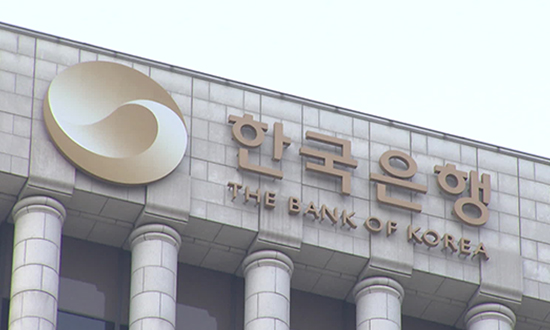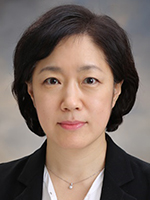BOK's monetary policy board member hints at additional rate hike this year
이 글자크기로 변경됩니다.
(예시) 가장 빠른 뉴스가 있고 다양한 정보, 쌍방향 소통이 숨쉬는 다음뉴스를 만나보세요. 다음뉴스는 국내외 주요이슈와 실시간 속보, 문화생활 및 다양한 분야의 뉴스를 입체적으로 전달하고 있습니다.

the country’s first rate hike in nearly three years in August.
"The current money policy is still loose even after a hike in the key rate in August,” Suh Young-kyung, a member of Bank of Korea’s six-member Monetary Policy Committee, said on Wednesday at a seminar organized by Korea Chamber of Commerce and Industry. "We will need to decide on the timing and pace of further rate hikes after taking macroeconomic and financial circumstances into consideration.”
In August, the BOK raised its base interest rate by 25 basis points to 0.75 percent from the historic low of 0.50 percent. It was the first rake hike by the BOK since November 2018, showing its willingness to contain inflationary gains and financial imbalance.
Market analysts expect an additional rate hike during the next monetary policy meeting in October or November when this year’s last rate-setting meeting will be held.

Financial imbalance refers to excessive household debt against stagnated income and over-concentration of debt-financed capital investment in assets like housing and securities through cheap liquidity, according to the bank.
Suh suggested the BOK considers factoring in rising housing costs into the consumer price index after the country’s housing prices have been rising during the Covid-19 pandemic.
She, however, admitted that it is not easy to take preemptive monetary actions amid lingering economic uncertainties at a time when the Korean economy has been beset with downside risks such as flagging consumption, increasing export uncertainty and incomplete recovery of employment.
Still, it is important to proactively come up with measures to deal with potential structural changes in the post-Covid era as the pandemic impact coupled with disruptive technology advances and demographic shifts is accelerating changes in the existing economic structure, Suh said, citing the constant presence of uncertainty, the accumulation of financial imbalance, and the expansion of economic imbalance as the three monetary policy challenges in the post-Covid era.
[ⓒ Maeil Business Newspaper & mk.co.kr, All rights reserved]
Copyright © 매일경제 & mk.co.kr. 무단 전재, 재배포 및 AI학습 이용 금지
- North Korean leader vows to normalize inter-Korean liaison hotlines in early Oct. - Pulse by Maeil Business News Korea
- BOK’s monetary policy board member hints at additional rate hike this year - Pulse by Maeil Business News Korea
- Korean capital prices tumble on US, China debt issues - Pulse by Maeil Business News Korea
- Maekyung Media Group Chairman proposes Busan become home to hydrogen vessels - Pulse by Maeil Business News Korea
- HK inno.N aims to double sales over the next three years: CEO - Pulse by Maeil Business News Korea
- 강경준, 상간남 피소…사랑꾼 이미지 타격 [MK픽] - 스타투데이
- ‘부자만 낸다’는 금투세, 개미는 왜 반대할까 [TOPIC]
- 대만 치어리더 한국스포츠 첫 진출…K리그 수원FC - MK스포츠
- 이찬원, 이태원 참사에 "노래 못해요" 했다가 봉변 당했다 - 스타투데이
- 양희은·양희경 자매, 오늘(4일) 모친상 - 스타투데이